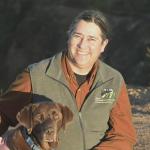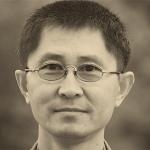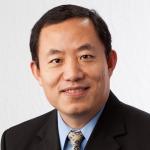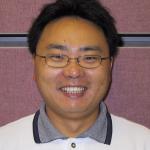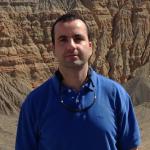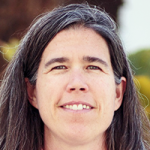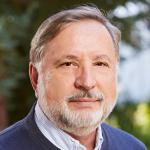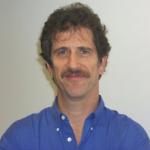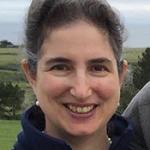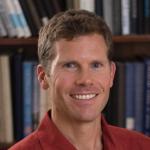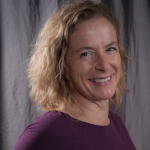SCEC By-laws
The Center operates under a set of by-laws established for the purpose of conducting SCEC business in a collegial manner. The Board of Directors (in close coordination the Center Director, Co-Director, officers, the lead institution, and funding agencies) is responsible for drafting and approving the SCEC By-laws. Since the Center began on February 1, 1991, revisions to the SCEC By-laws have been adopted effective February 1996, March 2002, February 2007, July 2010, February 2012, September 2014, February 2017, June 2018, and April 2020. The By-laws outline the terms of the institutional membership, with the University of Southern California (USC) as the lead institution. The responsibilities of the principal investigators, Board of Directors, Center officers and standing committees are defined, as well as procedures for conducting their business.
Standing Committees
The Board of Directors may establish committees for specified terms to support the Center. When creating a new committee, the Board will specify the scope of committee activity. Committees may not set policy nor take binding action nor publish Center documents without the consent of the Board of Directors. Committees may not create or appoint subcommittees without consent of the Board of Directors. The following Standing Committees of the Center have been established by the Board of Directors:
Executive Committee of the Center. The Executive Committee of the Center (ExCom) handles the day-to-day responsibilities for Center operations. The ExCom plays a leading role in (1) implementing policies for the management of the Center; (2) ensuring that the available resources are allocated appropriately to meet Center goals, contracts and agreements; (3) providing useful information and expertise that contributes to refining scientific goals of the Center and a long-term plan for its success; (4) communicating and coordinating with the sponsors and program officers on Center activities and addressing areas of concerns as needed; (4) pursuing funding opportunities, strategic partnerships, and new initiatives in consultation with other SCEC leadership groups; (5) supervising and mentoring Center staff at the USC and evaluating their performance; (6) working jointly with the Board on recommendations for other leadership roles within the Center; and (7) onboarding and supporting new SCEC leadership and staff on their role and responsibilities to the Center.
Directors’ Advisory Committee. The Board of Directors has established a standing committee to specifically review the performance of the Center Director and Co-Director and to assist, as necessary, with their efforts. This committee consists of a chair and up to three additional members of the Board of Directors, nominated and confirmed by the full Board membership. The committee helps respond to leadership issues that arise, and works with the Director, Co-Director, and Executive Committee of the Center in their efforts to support the Center. The committee reports to the Chair and Vice Chair of the Board, and submits to them an annual review of the Center Director and Co-Director.
Committee for Professional Conduct. The Committee for Professional Conduct is charged with receiving and acting on all reports by the SCEC community of potential misconduct. The committee will perform preliminary, prima facie assessment of any issues brought to it. If the reported issue falls within misconduct as defined by the SCEC Code of Conduct, the committee has authority to discuss the matter with the parties and recommend a course of action to the parties, the Director and Co-Director, or the Board of Directors. Reported issues that fall under the protected categories appropriate for Title IX will be referred to the USC Title IX Office for investigation. This committee is meant to serve as an additional, potentially more accessible resource for the SCEC community, and does not replace the possibility of reporting any issue of concern directly to the Title IX office at USC, which is the lead institution of the Center.
Committee for Equity, Diversity, and Inclusion. The Committee for Equity, Diversity and Inclusion is responsible for assessing and recommending actions that support and broaden participation of underrepresented groups within the SCEC community and leadership positions; and to firmly establish these goals as a value within the professional culture of the Center. The committee activities may include surveying the community, recommending actions to be taken by SCEC, and working with Center leadership, the CEO program, working groups, and other collaborators to develop initiatives that improve SCEC’s equity, diversity, and inclusion practices. In recognition of the international nature of science and the academic community, the committee is also charged with welcoming and supporting international scientists to participate in the SCEC collaboration.
External Advisory Council. An appointed external Advisory Council (AC) serves as an experienced body that provides an outside perspective on the Center’s activities with an emphasis on broader impacts and sustainability. The AC is charged with developing an overview of Center operations and advising the Director, Co-Director, and Board of Directors on major issues that confront the Center. At minimum, the Advisory Council provides an annual report to the Center’s leadership evaluating the broader impact of the Center’s activities and outlining ways this impact might be sustained, strengthened, or expanded. The Advisory Council also facilitates interactions with allied disciplines and entities with an interest in earthquake science and education.
Science Planning Committee. The Science Planning Committee (SPC) is responsible for (1) formulating the Center’s science plan that solicits proposals from individuals and groups to participate in the SCEC research program, (2) conducting reviews of all proposals that respond to the annual science plan, and (3) recommending to the Board of Directors an annual research program with a balanced portfolio of projects. Their objective is a coherent science program, consistent with SCEC's basic mission, institutional composition, and budget that achieves the Center's short-term objectives and long-term goals. The SPC comprises the leaders of the SCEC science working groups—disciplinary committees, focus groups, and special project groups—who, together with the Center Director, SPC Chair and Vice-Chair, guide SCEC’s research program. SPC members also play key roles in implementing the SCEC science plan.

